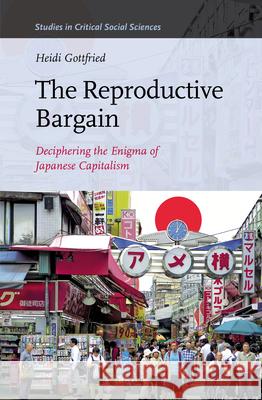The Reproductive Bargain: Deciphering the Enigma of Japanese Capitalism » książka
The Reproductive Bargain: Deciphering the Enigma of Japanese Capitalism
ISBN-13: 9789004291492 / Angielski / Twarda / 2015 / 170 str.
The Reproductive Bargain: Deciphering the Enigma of Japanese Capitalism
ISBN-13: 9789004291492 / Angielski / Twarda / 2015 / 170 str.
(netto: 570,63 VAT: 5%)
Najniższa cena z 30 dni: 570,75
ok. 22 dni roboczych.
Darmowa dostawa!
The Reproductive Bargain reveals the institutional sources of labor insecurities behind Japan's postwar employment system. This economic juggernaut's decline cannot be understood without reference to the reproductive bargain. The historical terms of the reproductive bargain rests on the establishment of company citizenship in support of a standard employment relationship, privileging the male breadwinner in calculations for benefits in exchange for the salarymen working long hours in relatively secure jobs at the enterprise and relying on women's unpaid reproductive labor in the family and increasingly on women's waged work in nonstandard jobs. Such institutionalized relationships, formerly the engines of growth and stability, drag economic expansion and employment security. Gendering institutional analysis is a key to deciphering the enigma of Japanese capitalism.











